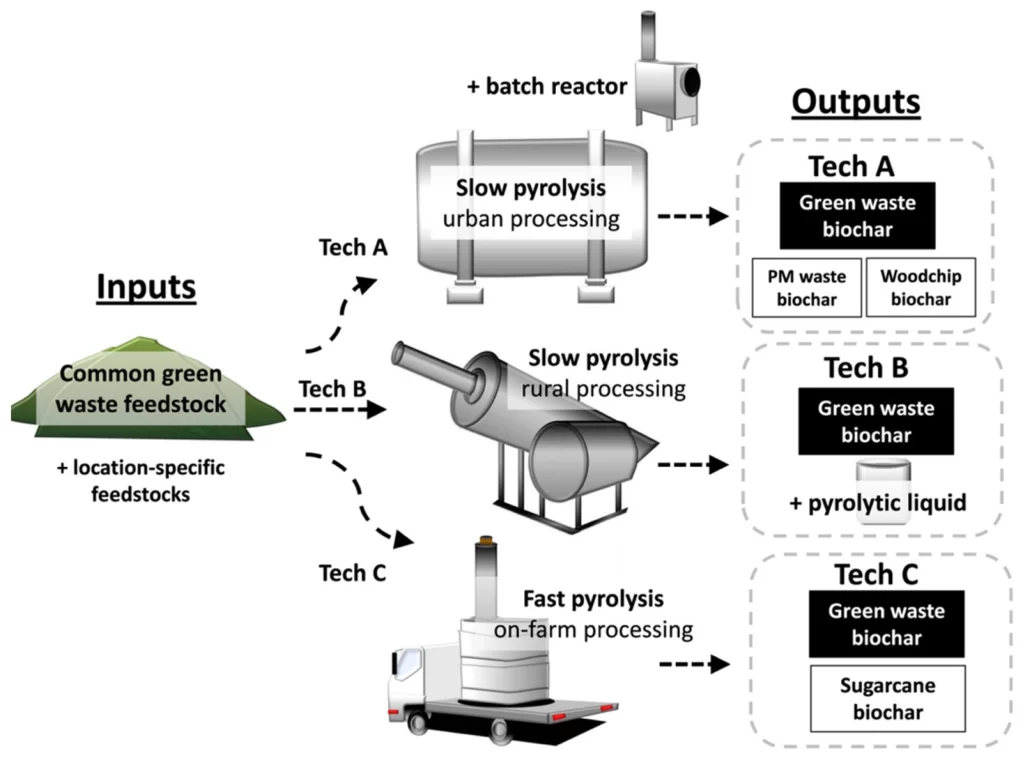Hemp biochar is a type of charcoal made from the waste material of the hemp plant. It is created through a process called pyrolysis, which involves heating the hemp waste in an oxygen-free environment to high temperatures. As the hemp waste breaks down, it releases a variety of gases, including hydrogen, methane, and carbon monoxide, which are captured and used as fuel. The remaining solid material is the hemp biochar.

Hemp biochar has a number of potential benefits, both for the environment and for agriculture. In terms of environmental benefits, hemp biochar can be used to sequester carbon dioxide from the atmosphere. When hemp biochar is produced, a large portion of the carbon in the hemp waste is converted into a stable, solid form, which is then retained in the soil. This means that hemp biochar can help to reduce the overall amount of carbon dioxide in the atmosphere, which is a major contributor to climate change.
Hemp biochar also has the potential to improve soil health. It has a high surface area, which allows it to effectively absorb water and nutrients, making it a useful soil amendment. Hemp biochar can also help to improve soil structure, making it more porous and better able to retain moisture. This can be especially useful in areas with dry or sandy soil, which tend to have poor water retention.
Hemp biochar can also be used as a natural pest control method. It has been shown to be effective at repelling a variety of insects, including termites and beetles, which can be a major problem for farmers. In addition, hemp biochar can help to reduce the need for chemical fertilisers, as it can improve soil fertility and help plants to better absorb nutrients.
There are also potential economic benefits to producing hemp biochar. As a waste product, hemp biochar can be produced relatively inexpensively, making it an attractive alternative to other biochar sources. In addition, the production of hemp biochar can create jobs and stimulate local economies, especially in areas where hemp is grown.
Overall, hemp biochar has a number of potential benefits, including the ability to sequester carbon, improve soil health, and serve as a natural pest control method. It has the potential to be an important tool in the fight against climate change, and it could also provide economic benefits for communities where it is produced. As research into the potential uses of hemp biochar continues, it is likely that we will see an increasing number of applications for this innovative material.